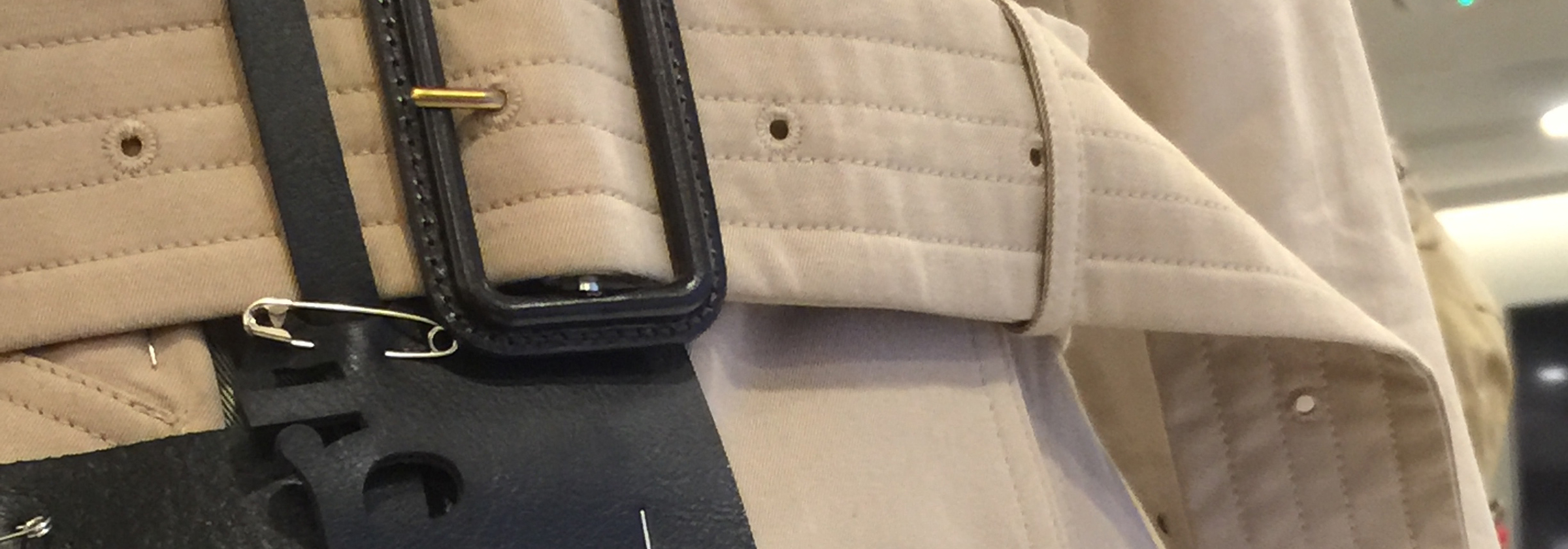LCF student Anthony Princi was part of the winning team at the Burberry Hackathon at the brand’s headquarters earlier this year.
Held as part of Burberry’s Innovation event, the Hackathon included design, engineering and technology students from 7 universities and challenged them to work together in interdisciplinary teams exploring the theme: ‘The Trench of the Future'. Anthony worked with students from CSM and the University of Leeds.
Each team was asked to envision one of the most iconic Burberry pieces, exploring new materials, functionalities and designs. Sustainable innovation was the main driver of the competition in response to the industry increasing demand for sustainable fashion and circular models.
Anthony's team won a mentorship with a senior director of the iconic British brand. We spoke to Anthony, who is graduating this year from his BA Fashion Design Technology: Menswear, about the competition and his time at London College of Fashion.

Can you tell us more about your experience at the Burberry Innovation Hackathon?
It was very interesting, I'd never been a part of anything like this so I had no expectations. We were told to go to a table with 4 strangers and just start! We were quite lucky in the respect that we had 3 design students who all did menswear, so the physical design process went very smoothly. We all wanted to achieve the same goal of retaining the brand’s heritage and revolutionise the trench coat rather than change it, since tradition is the backbone of the company. We were also very lucky to have a leather specialist on our team whose, I believe, knowledge of sustainable ways of using and washing leather was what sealed the victory for us.
What part did you play in the team?
My part, along with another teammate, was predominantly within design and creating the prototype. I personally had made signature laser-cut seams which contained the new Burberry monogram as we aimed our design to combat the many companies worldwide who counterfeit the Burberry trench and wanted to create something that even the cost of manufacturing alone was achievable by high street but it was important to incorporate the monogram into the new coats DNA as this is what Riccardo Tisci had wanted for Burberry.
What did you learn from this collaboration?
I learnt a lot especially about leather production and how it can be more sustainable than faux leathers. Using pressurised air polymers to clean the leather hide uses 70% less water and despite it still being an animal product only, by-products are used.
Coming from a family who works in the meat industry, leather has always been quite important and the development of creating more sustainable methods of its use does mean a lot to me.
Sustainability was at the heart of the competition, is it an important component in your work?
I've never vocally made sustainability apart of my process and I think this is because I approach sustainability much differently to a lot of others. I believe bespoke, well-made garments are the greatest form of sustainability, especially in menswear garment versatility allowing users to wear single garments for multiple usages.
I try my best to only use 100% natural fibres so if anything does end up in landfill it will naturally degrade.
Not only this but also I have a strong appreciation for supporting local manufacturing and supporting the local economy, this comes back to tradition and the same methods in which my family implore into their business back home in Australia, staying loyal and being good to the economy that has been good to you.
Tell us more about your time at LCF: why did you choose to study at LCF? What attracted you about this university?
It all happened very fast! I was studying Fashion Design at RMIT in Melbourne Australia, where I was studying womenswear only. I was travelling in Europe when I was told menswear studios were cancelled. Instantly, I didn't want to go back and by sheer luck, I met a stranger in Dublin also studying menswear who told me LCF was the best in this field. Having had travelling lecturers from LCF including Shaun Cole, I was familiar with the school and determined to start my application as soon as possible. The deadline being on that day, the application process was incredibly fast. I worked on my application all over Europe during my travels. I was given an interview back in Australia, offered a place on the spot and the rest now is history. Everything happened for a reason and I couldn't be happier.
What are your plans for the next few years? Where would you like to see yourself professionally?
I've come from a family that has always worked. My father made me go to work every weekend and school holiday since I was 12 and I couldn't appreciate that time more. It made me want to work and gave me an incredible drive and work ethic, so I honestly just want to start working so that I can start proving that I'm not just a good student and that my skills and experience are all translatable to the fashion industry. I hope to one day work in a lead management/director role within the luxury sector of fashion. Luxury craftsmanship and consideration is something I have always strived for within my own work and hope I am able to continue this far into my professional life.
- Follow Anthony on Instagram
- Find out more about BA (Hons) Fashion Design Technology: Menswear
- Explore LCF undergraduate
- What’s on at LCF: open days and events
- More LCF Stories

